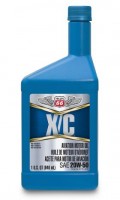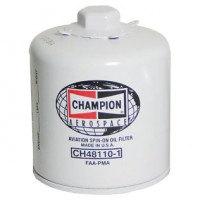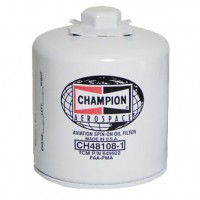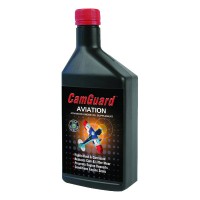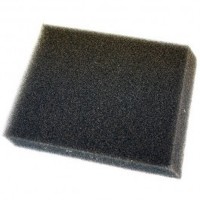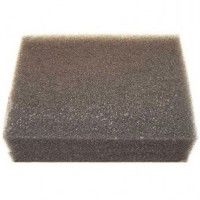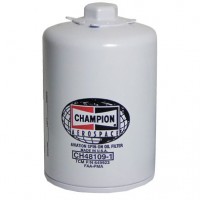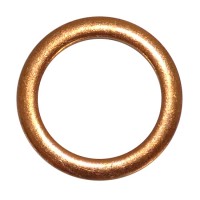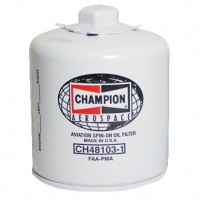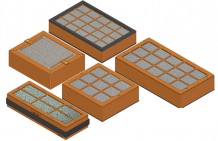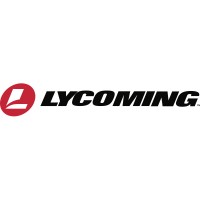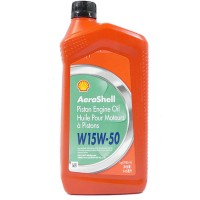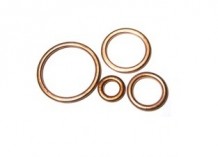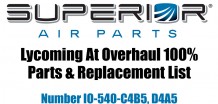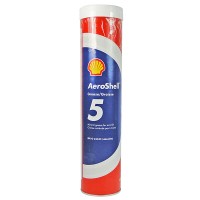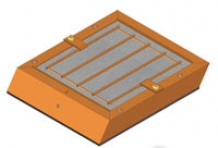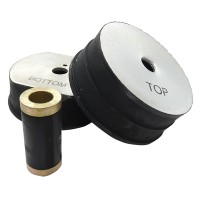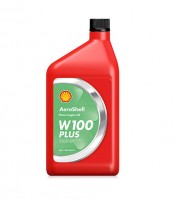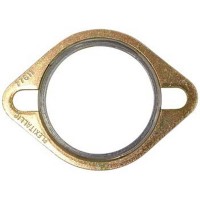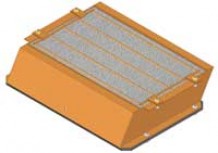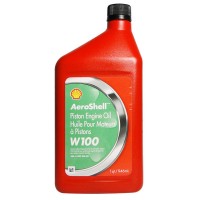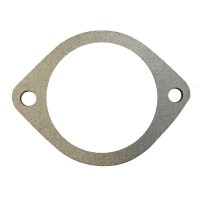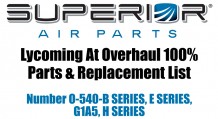AVBLEND Engine Oil Additive 12 Oz
Overview
|
The only product of its kind, AVBLEND is a unique "micro"-lubricant. AVBLEND molecules have been reformulated to be smaller than regular oil molecules. The results of this reformulation allow AVBLEND to soak deeper into the metal than any other lubricant. AVBLEND penetrates, cleans, lubricates and protects aircraft piston engines from the inside out.
AVBLEND uses your aircraft's engine oil as a carrying agent to reach metal working surfaces inside your engine. When your engine reaches operating temperature, AVBLEND soaks into the metal surfaces. Once AVBLEND has penetrated the internal components of an engine, the parts are continuously lubricated and cleaned. Continuous use of AVBLEND helps reduce future harmful carbon deposit buildup. If you were to look at the metal in your engine through a microscope, you would see that the surface is far from smooth. You would see peaks and valleys, blunt and sharp edges. Your aircraft engine's oil moves over the surface doing its best to provide lubrication. However, the oil molecules are too large to provide penetration in the small grooves and protect the entire surface of your engine. AVBLEND's depth-soaking molecules are small enough to fill in these tiny nooks and crannies and penetrate deep into the metal, thus providing better lubrication with moving pieces. Plus, AVBLEND cleans the surface from harmful deposits. Operational Cost-Savings The chart, right, provides an average cost of performing a single cylinder or top overhaul repair on four and six-cylinder aircraft engines. Labor pricing is based on an average shop rate of $50.00 per hour. Costs stated below do not include tax, shipping or lost revenue while the aircraft is grounded for these repairs. Using AVBLEND at every oil change costs considerably less than a single cylinder replacement, and a fraction of more costly repairs. Not only is AVBLEND solid preventative maintenance, but it provides an added level of safety and security by reducing the chance of compression loss and the resultant decrease in horsepower. Dry-Start Damage After initial start-up, although oil pressure registers on the cockpit gauges, it can take an additional 45 to 120 seconds for oil to reach critical parts of your engine. Starting your engine is the major cause of engine wear. The piston (below left) removed at overhaul shows severe thrust side scoring which is common when AVBLEND is not used. The piston (below right) shows thrust side commonly seen at TBO using AVBLEND. Rust and Corrosion Most aircraft owners, quite simply, don't fly their airplanes enough. These periods of inactivity can cause irreversible rust and corrosion which can lead to premature replacement of expensive internal engine parts. The camshaft (below left) shows significant rust and corrosion damage which resulted in premature replacement. The camshaft (below right) was protected by AVBLEND and made it to TBO still within factory limits. Carbon and Deposit Build-Up Leaded aviation fuels combined with high operating temperatures create an environment for carbon and deposit build-up in the most critical areas of your engine. AVBLEND kept the exhaust guide (below right) virtually carbon free and dimensionally correct while the unprotected guide (below left) shows significant carbon. Valve Stem Deposits and Wear Carbon and deposit build-up (below left) can cause valve sticking and excessive valve stem and guide wear which can lead to catastrophic engine failure. AVBLEND (below right) can help to minimize these potentially dangerous deposits and wear. |
WARNING: Cancer and Reproductive Harm - www.P65Warnings.ca.gov. |
Use Instructions
Pour one bottle (12oz.) into the oil system. For best results, operate for 30 minutes after treatment.
Recommended retreatment schedule
Every 25 operating hours is recommended - 50 hours / 4 months is required for continuous
For new and rebuilt engines AVBLEND helps:
- Prevent build-up of carbon, and deposit build-up commonly found in high temperature air cooled engines
- Reduce damaging dry starts, which can prematurely wear out the internal parts of your engine before reaching TBO
- Prevent rust and corrosion damage during periods of inactivity
- Reduce the potential of unnecessary maintenance costs due to premature wear (ie low-compression cylinder removal) at your aircraft's inspections
- Keep new and rebuilt engines dimensionally correct from rebuild to TBO
- Maintain performance and efficiency over the lifetime of the engine
- Clean your engine by dissolving existing carbon and deposit buildup commonly found in high temperature air-cooled engines
- Restore lost performance and combustion efficiency to engines with accumulated hours
Documents
Reviews
Good engine protection Spruce has the best prices for this.
AVBLEND Engine Oil Additive 12 Oz
AVBLEND Engine Oil Additive 12 Oz
AVBLEND Engine Oil Additive 12 Oz
AVBLEND Engine Oil Additive 12 Oz
Have been using avblend for a while. No complaints.
AVBLEND Engine Oil Additive 12 Oz
Been using this every oil change since the engine hit 500 hours. Runs smooth and will be interested to see the internals at tear down.
AVBLEND Engine Oil Additive 12 Oz
No idea if it works the way it is advertised but its a little insurance especially for cold starts and anything to help with small continental valves
AVBLEND Engine Oil Additive 12 Oz
Have used this in my AEIO-320 for 8 years with excellent oil analysis results at every annual.
AVBLEND Engine Oil Additive 12 Oz
Great product that keeps my seldom-run engine safe.
AVBLEND Engine Oil Additive 12 Oz
I add one bottle at each oil change
AVBLEND Engine Oil Additive 12 Oz
Q&A
Please note, Aircraft Spruce's personnel are not certified aircraft mechanics and can only provide general support and ideas, which should not be relied upon or implemented in lieu of consulting an A&P or other qualified technician. Aircraft Spruce assumes no responsibility or liability for any issue or problem which may arise from any repair, modification or other work done from this knowledge base. Any product eligibility information provided here is based on general application guides and we recommend always referring to your specific aircraft parts manual, the parts manufacturer or consulting with a qualified mechanic.
Per the supplier: Yes, Avblend is the aviation FAA approved version. There is no other difference than Avblend is for aviation and Zmax is not.
Per the supplier: Yes. There is no problem using AVBLEND in the oil system and TCP in the fuel system at the same time. We DO NOT recommend other oil additives mixed with AVBLEND.
Yes, this is safe to use with 20W-50 Phillips 66 x/c.
AVBLEND is the only product of its kind approved by the FAA for aircraft piston engines. AVBLEND is a tenacious micro-lubricant with reformulated micro-molecules that penetrate, clean and protect metal from the inside out. AVBLEND soaks into the metal.
Yes. AVBLEND is FAA approved for aircraft piston engines; it is the only product of its kind to receive FAA approval.
Yes. AVBLEND is compatible with all conventional and synthetic oils.
We recommend using AVBLEND with each 25-hour oil change for best results, not to exceed 50 hours between oil change intervals, or a total of four (4) months maximum between oil change intervals, whichever comes first.
Add one (1) 12 oz. can of AVBLEND to 4 cylinder engines (4 - 8 quart oil system capacity).
Add two (2) 12 oz. cans of AVBLEND to 6 or 8 cylinder engines (9 quart or more oil system capacity).
NOTE: The Continental TSIO and IO-360 series engines have an 8 quart oil system capacity and will require only one (1) 12 oz. can of AVBLEND at each oil change interval.
AVBLEND is a progressive lubrication treatment program -- not a quick-fix, one time treatment in a can. AVBLEND treatment is recommended at each oil change interval because AVBLEND continuously soaks in and weeps from treated metal surfaces. For additional protection while your aircraft is in long-term storage, we recommend that you treat your engine with AVBLEND prior to your last flight before storing your aircraft. By properly replenishing AVBLEND, your aircraft engine will receive the necessary continuous protection between oil changes.
AVBLEND can help restore and maintain your used aircraft engine to improved performance levels -- providing protection against rust, corrosion, dry start damage and premature wear. AVBLEND's unique penetrating ability slowly dissolves carbon and helps to improve valve and ring sealing in the combustion chamber. This provides better cylinder combustion (peak pressure) efficiency resulting in improved engine horsepower. Engines must be at least dimensionally correct within service limits to restore performance.


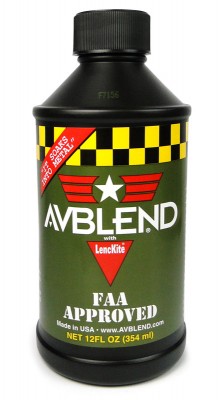





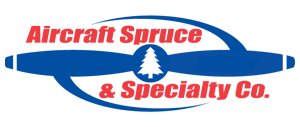 FREE Shipping
FREE Shipping
